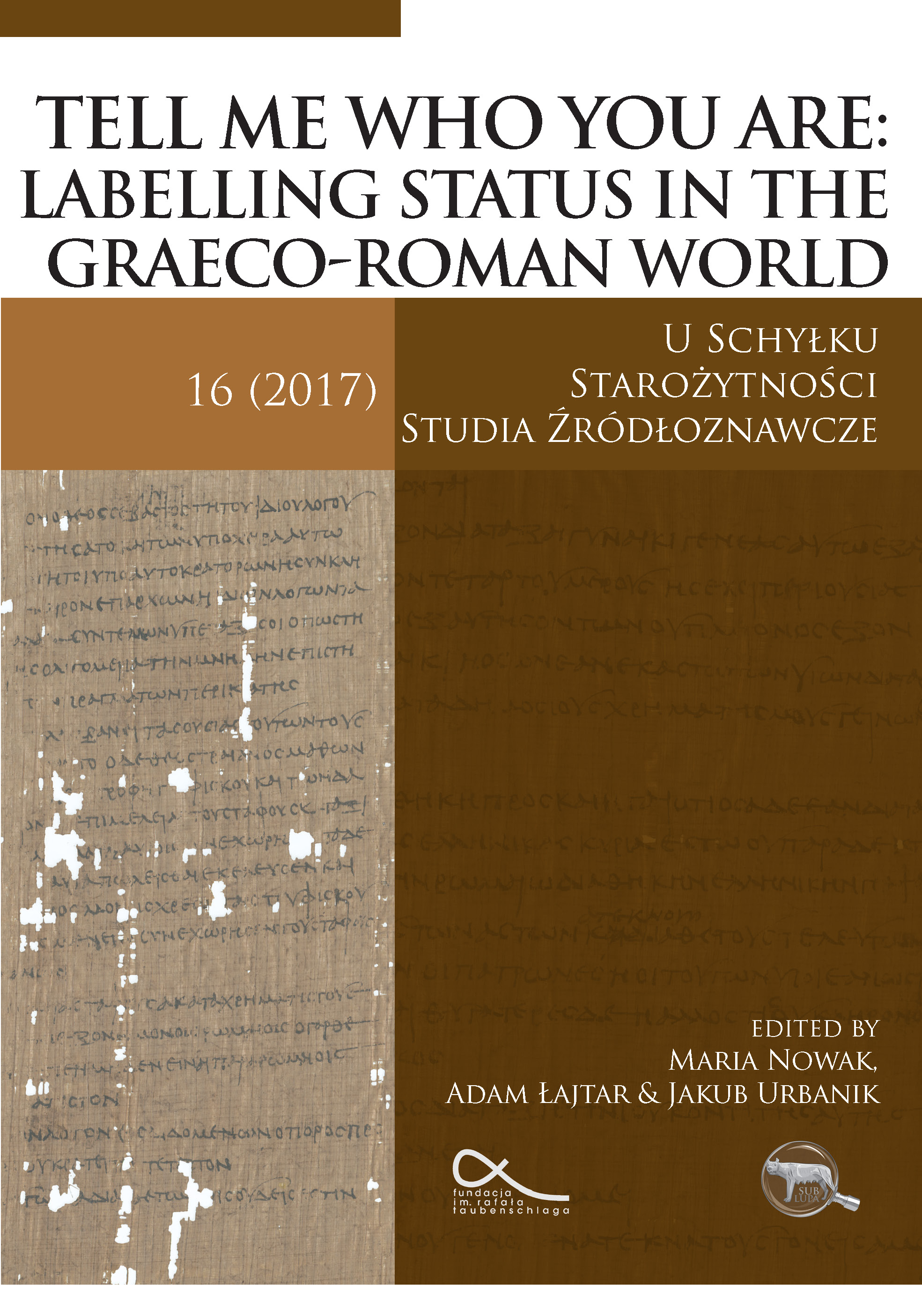Emphasising matrilineal ancestry in a patrilineal system
Emphasising matrilineal ancestry in a patrilineal system
Maternal name preference in the Roman world
Author(s): Tuomo NuorluotoSubject(s): History of Law, Ancient World
Published by: Wydawnictwo Naukowe Sub Lupa
Keywords: onomastics; Latin epigraphy; Roman personal names; Roman women; Roman social history; Roman law
Summary/Abstract: This paper investigates the use of maternal names in the Roman world, in particular cases where the maternal nomenclature was deliberately preferred over the paternal one. In the typical scenario Roman children, as a rule, would automatically receive their father’s nomen. Sometimes, however, one encounters cases where they bear the maternal name instead. The reason was often of legal nature, as illegitimate children, for instance, would take their status— and subsequently their name — after their mother. Adoption, manumission, and other such legal reasons could also dictate the choice of the name. In some cases, however, it seems that children born of a legal union were voluntarily named after the maternal branch of the family— sometimes with no traces of the paternal nomenclature apart from the filiation. Such cases are mainly found in the senatorial class, where social and political prestige played an important role in this respect. Furthermore, the phenomenon of completely abandoning the paternal nomenclature in favour of the maternal seems to have primarily pertained to women. The first part of the survey briefly tackles the legal reasons, in other words cases where there was no other choice than the using of the maternal nomen. After this, the discussion proceeds to the voluntary favouring of the maternal nomenclature. Here several illustrative samples from the senatorial ordo are presented and discussed in detail. The final part of the survey explores the possibility of such onomastic practices outside the senatorial class. Here some possible, yet sporadic evidence representing provincial elite is discussed.
Journal: U schyłku starożytności - Studia źródłoznawcze
- Issue Year: 2017
- Issue No: XVI
- Page Range: 257-281
- Page Count: 25
- Language: English

